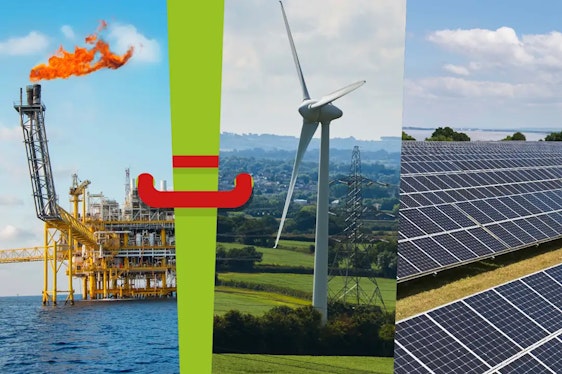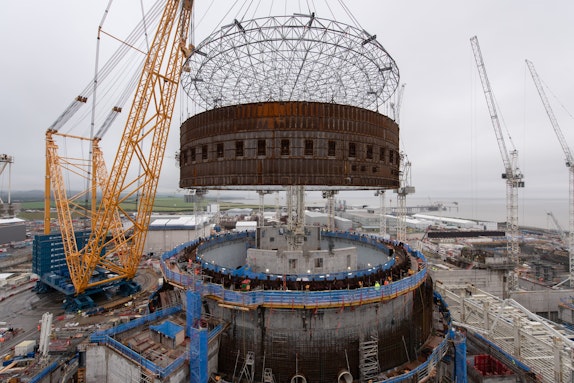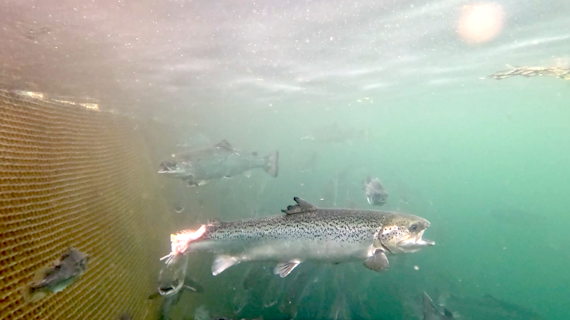
Breaking the Link Between Fossil Fuel and Renewables
High energy bills persist because our market ties green energy prices to fossil gas costs. Breaking this link could finally deliver cheaper, fairer, stable electricity.
Over the last decade, airport expansion plans have been piling up. New runways, bigger terminals - the same old obsession with endless growth. Since 2018, nine airports have submitted expansion requests, and so far, Bristol, London City, Luton, Southampton, Stansted, and Heathrow have all had their plans approved.
All this while we’re in a climate emergency.
The reality is, airport expansions aren’t even economically viable, despite what the government and aviation lobby want us to believe. Economic analysis shows air travel has done nothing to boost UK productivity or GDP growth
In fact, UK tourists spend more abroad than foreign tourists spend here - expanding airports will only widen that gap. Then there’s the public health cost of more air traffic, pumping out even more pollution into the air we breathe.
More runways mean more emissions at a time when we desperately need to reduce them. And yet, governments and corporations continue chasing unsustainable growth, ignoring the long-term costs. The more we fuel the climate crisis, the more we’ll pay to clean up after floods, fires, and the destruction of communities and ecosystems - if they can even recover at all.
One of the industry’s go-to excuses for expansion is Sustainable Aviation Fuel (SAF) - the idea that biofuels will allow us to keep flying without the emissions. It’s nonsense.
The reality is, we don’t have the land or resources to scale up SAF production to meet even current demand, let alone the increased fuel consumption that airport expansion would bring. The idea that we can swap out jet fuel for something "greener" and carry on as normal is a dangerous distraction from the urgent need to cut emissions.
Fewer people are flying now, and the vast majority of flights are taken by the rich elite. In the UK, 70% of flights are taken by just 15% of the population - generally the wealthiest people - while over half of Britons don’t fly at all.
As Greenpeace UK’s chief scientist, Dr. Doug Parr, puts it, most of the benefits of airport expansion will go to jet-setters, airlines, and airport bosses, while the taxpayer foots the bill for new infrastructure and transport links. We’re literally subsidising pollution so the wealthiest can fly more.
Now let’s break it down even further.
Any increase in air traffic means more carbon emissions - at a time when every sector is supposed to be cutting them to reach net zero.
Expanding airports also worsens noise and air pollution - two things that are directly linked to serious health issues.
Noise pollution from aircraft has been tied to cardiovascular disease, strokes, insomnia, hypertension, and mental health disorders.
Air pollution from aviation already contributes to over 2,900 deaths in the UK every year and costs the economy between £9–19 billion annually.
According to figures from the International Agency for Research on Cancer (IARC), air pollution is now causing 1,100 cases of lung cancer a year in the UK - the most common form of the disease.
Sarah Sleet, chief executive of Asthma + Lung UK, called this yet another piece of the "ever-growing body of evidence" showing the devastating impact of air pollution on our health. She put it bluntly:
“it’s not a shock to see the UK so high up in these depressing league tables of adenocarcinoma caused by air pollution. Yet still the government fails to take decisive action even just [recently] giving the go ahead to an additional runway at Heathrow… rather than setting stricter targets to protect people from the harms of air pollution”
The usual excuse for more runways is that they’ll boost the economy, create jobs, and increase tourism. Take Gatwick Airport CEO Stewart Wingate, who claims the airport’s second runway will generate an additional £1 billion of GDP per year and create 14,000 jobs across the region.
It sounds good - but the numbers don’t add up.
The Office for National Statistics (ONS) data from 2023 shows that:
UK residents took 86.2 million trips abroad, spending £72.4 billion.
Overseas tourists took 38 million trips to the UK, spending £31.1 billion.
That’s a £41 billion deficit - more than double the amount of money being spent abroad compared to what’s coming in. Expanding airports will only make this worse. The government is choosing short-term corporate profits over the long-term cost of the climate crisis - a cost that will be far higher than whatever economic "benefit" they claim from expansion.
The evidence is overwhelming - there should be no airport expansion anywhere in the UK.
It’s a climate disaster. More flights mean more emissions, more pollution, and more destruction of ecosystems.
It’s a public health disaster. More planes mean more noise, more air pollution, and more people dying from preventable diseases.
It’s an economic disaster. UK tourists already spend far more abroad than foreign visitors spend here - expanding airports will only widen the gap.
We cannot prevent climate breakdown by building more runways. We need to stop being led by greed and start investing in green industries that will actually benefit society.
The government loves to talk about net zero - but every airport expansion they approve proves they’re not serious about it. If we want to tackle the climate crisis, we can’t keep expanding one of the most polluting industries on the planet.
For once, let’s do the right thing.
High energy bills persist because our market ties green energy prices to fossil gas costs. Breaking this link could finally deliver cheaper, fairer, stable electricity.
Sizewell C is an overpriced, delayed, and risky nuclear project we don’t need. Renewables are faster, cheaper, and safer—yet households will pay billions for Sizewell before it even generates electricity.
Salmon farming is a toxic, unsustainable mess—polluting oceans, killing wild fish, and fueling disease. It’s time to shut it down before it wipes out marine ecosystems for good.
Forest Green Rovers is the world’s greenest football club - powered by clean energy, serving vegan food, and tackling transport emissions. Now, we’re building Eco Park, a stadium that will set new sustainability standards.


